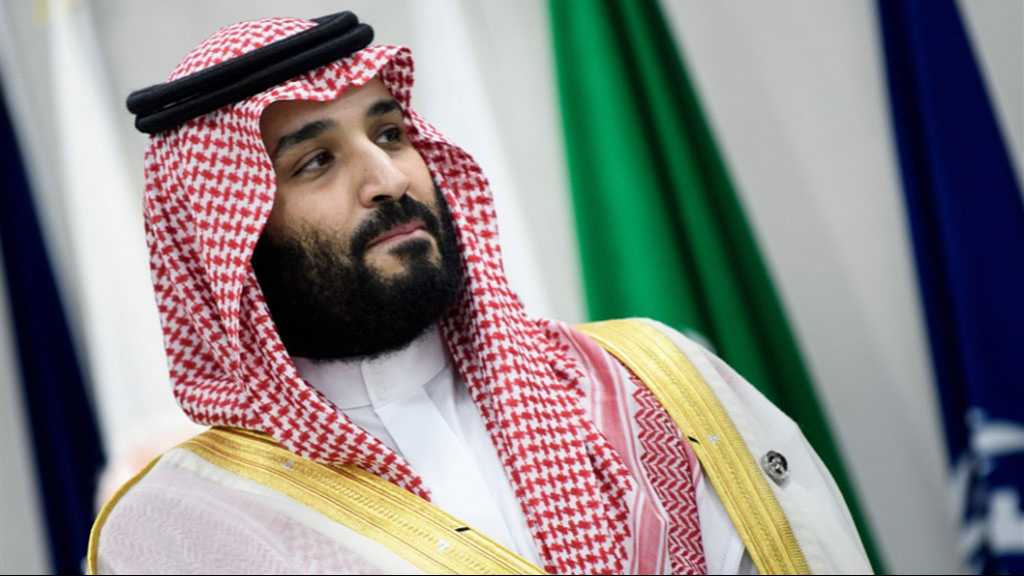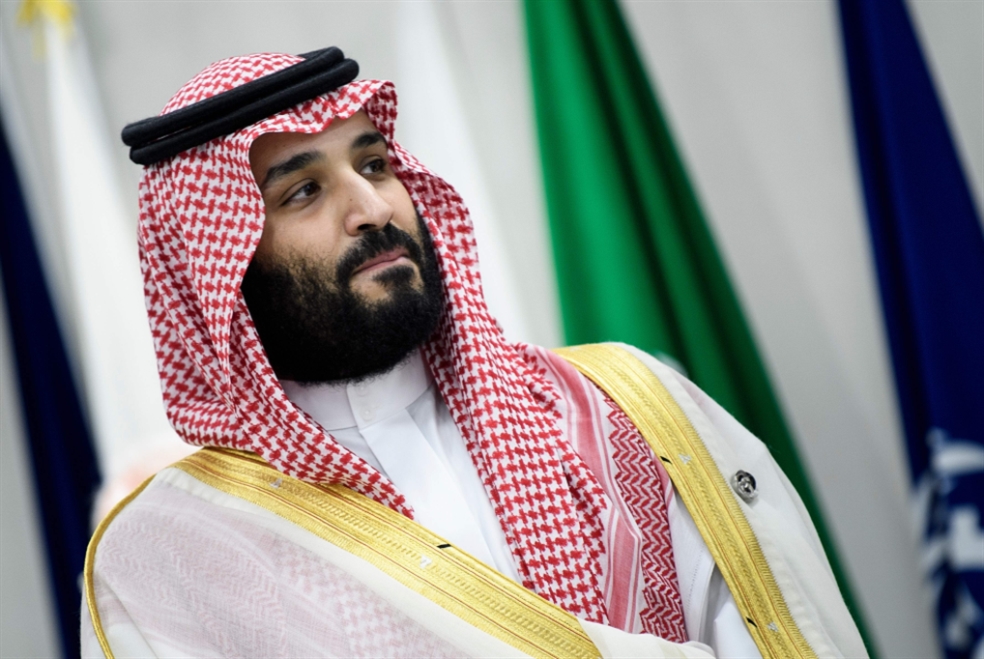
By Al-Akhbar Newspaper – Translated by Staff
There is no need for much effort to deduce the Saudi position regarding the move of its Emirati ally to publicize its relations with ‘Israel’. What the officials do not say publicly is proclaimed by the court media and writers in day and night, to the extent that some of them refused to grant the Palestinians “generosity” without return. Instead, the recompense was “blackmailing” practiced – for 70 years – in the Gulf “in the name of the sanctity of the cause”, according to articles of semi-unified narratives. It is clear now that the temporary royal silence and Riyadh’s reluctance to welcome – unlike Manama and Muscat – is the result of the kingdom not being ready to announce a full normalization with ‘Israel’. Therefore, it is hiding behind its allies [now the Emirates and then Bahrain and later Oman], waiting for a “suitable” day in which its crown prince, Mohammad bin Salman, can proceed with the alliance, to consolidate the covenant of his ancestors and their promise.
The way the UAE has created “will form an Arab trend that exceeds all the failed obstacles that prevailed for seventy years.” This will undoubtedly contribute to strengthening the Saudi-‘Israeli’ rapprochement. This is a trend that was reinforced in recent years, under the alliance of the “two Mohammads” [Bin Zayed and Bin Salman]. The two pillars of common hostility toward Iran and the attempts to attract foreign investment to finance the economic transformation plan, Bin Salman’s “2030 Vision”, will unequivocally push the kingdom into an apparent rapprochement with ‘Israel’. Founding the $500 billion-city, “NEOM” – the backbone of this faltering “vision” – requires “peace and coordination with ‘Israel’, especially if the city will have the opportunity to become a tourist attraction,” according to researcher Mohammad Yaghi at the German Konrad Adenauer Foundation.
The intersections are many, as well as the “interests” that unite the undeclared alliance, in addition to the American pressure that is evident through the Gulf-‘Israeli’ “reconciliation” mediator, Jared Kushner, to compel the kingdom to publicize its “inevitable” relations with ‘Israel’. Kushner said a few days ago “the course of a warship cannot be changed overnight.” He reminded Riyadh yesterday that the normalization of its relations with Tel Aviv would be in the interest of the kingdom’s economy and defense. It would also contribute to limiting Iran’s power in the region. As for ‘Israel’, the “peace agreement” between it and the Emirates represents “the most important cornerstone on the road to achieving the central goal of normalizing relations with Saudi Arabia,” the expression belongs to an ‘Israeli’ political official who spoke to Yedioth Ahronoth.
In exchange for Riyadh’s official silence and Washington’s public calls, the Saudi media adhered, as usual, to a unified narrative based on marketing the idea that the kingdom views the normalization of relations between Abu Dhabi and Tel Aviv as a sovereign Emirati affair, which would “yield good results for the Palestinian cause,” by “suspending the annexation process indefinitely,” despite all that has been said and spoken by ‘Israelis’ about baseless propaganda that the UAE marketed to justify its move. According to what has been written, the declaration “does not involve any interference in the Palestinian affair. It rather sets red lines for any policy that ‘Israel’ might pursue, which involves oppressing the rights of the Palestinian people, excluding the phantom of annexing the Palestinian lands, and the consolidating the two-state solution.”
The justification of the Emirati moves in terms of “realism” as “constituting an important breakthrough in the peace process … after it suffered from a long stalemate without any progress or success”, had a significant share. In addition to that, the call to “overcome the deadly division based on returning to calling for the Arab Peace Initiative as a basis for negotiation”.
Riyadh considers, through its media, that “the policy of estrangement and boycott has not achieved neither the interest of the Palestinians nor the Arabs.” Abu Dhabi chose “another communication and recognition-based approach to address the outstanding problems in a different climate,” because “the just Palestinian cause has remained for more than seventy years without a political solution that satisfies the Palestinians who were insisting on big things, betting on the power of righteousness and forgetting the right to power.” They depend entirely on “aid from the Arab countries, especially the rich Arab Gulf states, for their livelihoods, lives, jobs, authority, embassies, and all their life details.” They speak of “unprecedented emotional and ideological blackmail because of the Palestine issue,” although they are “like all the causes of liberation that the occupied peoples suffered to obtain their liberation from the colonialists, the Palestinians are not better than the Vietnamese, the Algerians, or the rest of nations.” They received peerless indulgence … while all historical documents confirm that they were the ones who sold their lands, not alone, but in villages and sub-districts until they were transformed into Jewish settlements.” Therefore, “there is no real solution of the Palestinian issue except for Palestinians to accept their situation and build a new identity of their own choice… and assuming responsibility is the right way.”
The normalization of relations between the UAE and ‘Israel’ will encourage all the other Gulf states to follow their counterparts and reveal their secret ties with ‘Israel’ not to let Abu Dhabi enjoying alone the combination of its capital and advanced ‘Israeli’ technology in all fields, to become, along with Tel Aviv, the most powerful and wealthy in the Middle East. This is according to Thomas Friedman in “The New York Times”, who in his article talks about another, a stronger and more psychological message addressed to Iran and its proxies, that “there are now two alliances in the region; The first is a UAE-led alliance of those who want the future to bury the past, and the second is an Iran-led alliance of those who wish that the past buries the future.”
ترحيب سعودي بخيانة أبو ظبي: متى يحين دور الرياض؟
الحدث الأخبار الثلاثاء 18 آب 2020

لا تزال الرياض تبدي حذراً شديداً إزاء الترحيب العلني بإتمام الاتفاق الإماراتي – الإسرائيلي. حذرٌ، وإن كان لا ينسحب على ما يُنشر في الإعلام (وكلّه رسميّ)، يمكن ردّه إلى حسابات كثيرة لا تزال تتخطّى في أهميتها الراهنة رغبة المملكة في البوحليس ثمّة حاجة إلى كثيرِ جهدٍ لاستنباط موقف السعودية إزاء خطوة حليفتها الإماراتية إشهار علاقاتها مع إسرائيل. فما لا يقوله الرسميّون في العلن، يجاهر به إعلام البلاط وكتّابه صبحَ مساء، إلى درجةٍ أنّ منهم مَن أبى إلّا أن يمنِّن الفلسطينيين بـ»كرمٍ» مِن دون مقابل، بل إنّ المقابل كان «ابتزازاً» مورس ـــــ على مدى 70 عاماً ــــــ في حقّ دول الخليج «باسم قدسيّة القضيّة»، وفق ما تقرأه مقالات بسرديّات شبه موحّدة. لم يعد خافياً أنّ الصمت الملكي الموقّت وإحجام الرياض عن الترحيب ـــــ بخلاف المنامة ومسقط ـــــ مردّهما إلى عدم جاهزية المملكة بعد، للإعلان عن تطبيع كامل للعلاقات مع إسرائيل. لذا، فهيَ تتلطّى خلف حليفاتها (الآن الإمارات ومِن بعدها البحرين ولاحقاً عُمان)، في انتظار يومٍ «مناسب» يمكن فيه وليّ عهدها، محمد بن سلمان، أن يمضي في التحالف، ليرسِّخ عهد أجداده ووعدهم.
الطريق الذي شقّته الإمارات «سيشكّل تياراً عربياً يتجاوز كل الإعاقات الفاشلة التي سادت لسبعين عاماً»، وسيسهم، بلا شكّ، في تعزيز التقارب السعودي ــــــ الإسرائيلي. وذلك اتجّاهٌ تعزّز بالفعل في السنوات الأخيرة، في ظلّ تحالف «المحمّدَين» (ابن زايد وابن سلمان). ركيزتا العداء المشترك تجاه إيران، ومحاولات جذب استثمارات أجنبية لتمويل خطة التحوّل الاقتصادي، «رؤية 2030»، الخاصة بابن سلمان، ستدفعان ـــــ بلا لبس ـــــ المملكة إلى تقارب علنيّ مع إسرائيل. فإنشاء مدينة الـ500 مليار دولار، «نيوم» ـــــ العمود الفقري لهذه «الرؤية» المتعثّرة ـــــ يتطلّب «سلاماً وتنسيقاً مع إسرائيل، خصوصاً إذا كانت المدينة ستُتاح لها فرصة أن تصبح منطقة جذب سياحي»، وفق الباحث في مؤسّسة «كونراد أديناور» الألمانيّة، محمد ياغي.
التقاطعات كثيرة، وكذا «المصالح» التي تجمع الحلف غير المُعلن، مضافاً إليها ضغوط أميركيّة تتبدّى عبر وكيل «المصالحة» الخليجية ــــــ الإسرائيلية، جاريد كوشنر، لحمل المملكة على إشهار علاقاتها «الحتميّة» بإسرائيل. ورغم أنّه «لا يمكن تغيير مسار سفينة حربيّة بين عشيّة وضحاها»، على حدّ تعبير كوشنر قبل أيام، فهو عاد وذكّر الرياض، يوم أمس، بأنّ مِن شأن تطبيع علاقاتها مع تل أبيب أن يصبّ في مصلحة اقتصاد ودفاع المملكة، إلى جانب أنه سيسهم في الحدّ من قوّة إيران في المنطقة. بالنسبة إلى إسرائيل، يمثّل «اتفاق السلام» بينها وبين الإمارات «الحجر الأساس الأهمّ في الطريق إلى تحقيق الهدف المركزيّ المتمثّل في تطبيع العلاقات مع السعودية»، والتعبير لمسؤول سياسي إسرائيلي تحدّث إلى «يديعوت أحرونوت».
في مقابل صمت الرياض الرسمي ودعوات واشنطن العلنيّة، التزم الإعلام السعودي، على جري عادته، سرديّة موحّدة، تقوم على تسويق فكرةٍ مفادها أنّ المملكة تنظر إلى تطبيع العلاقات بين أبو ظبي وتل أبيب باعتباره شأناً سيادياً إماراتياً، من شأنه أن «يسفر عن نتائج جيدة بالنسبة إلى القضية الفلسطينية»، عبر «تعليق عمليّة الضمّ إلى أجل غير مسمّى»، رغم كلّ ما حُكي ويحكى إسرائيلياً عن دعاية لا أساس لها سوّقتها الإمارات لتبرير خطوتها. بحسب ما كُتب، فإنّ الإعلان «لا ينطوي على أيّ تدخّل في الشأن الفلسطيني، بل (هو) حدّد خطوطاً حمراً لأي سياسة قد تنتهجها إسرائيل تنطوي على هضم حقوق الشعب الفلسطيني، وأبعد شبح ضم الأراضي الفلسطينية، وعزّز الحلّ عبر الدولتين».
ذكّر كوشنر الرياض بأنّ مِن شأن تطبيع علاقاتها مع تل أبيب أن يصبّ في مصلحة اقتصادها
تبرير الخطوة الإماراتية من باب «الواقعية» بوصفها «تشكل اختراقاً مهمّاً في عملية السلام… بعدما عانت من جمودٍ طويلٍ من دون أي تقدمٍ أو نجاحٍ»، كان له حصة وازنة، فضلاً عن الدعوة إلى «تجاوز الانقسام القاتل على قاعدة العودة إلى المطالبة بمبادرة السلام العربية كأساس للتفاوض». تعتبر الرياض، عبر إعلامها، أنّ «سياسة القطيعة والمقاطعة لم تحقّق لا مصلحة الفلسطينيين ولا مصلحة العرب»؛ من هنا، اختارت أبو ظبي «مقاربة أخرى تقوم على الاتصال والاعتراف لطرح المشكلات العالقة في مناخ مختلف»، ذلك أنّ «القضية الفلسطينية العادلة ظلّت لأكثر من سبعين عاماً من دون حلٍّ سياسي مُرضٍ للفلسطينيين الذين كانوا يصرّون على أشياء كبيرة، ويراهنون على قوة الحق ويتناسون حق القوة»، ويعتمدون «بالكامل على المساعدات من الدول العربية، وبخاصة دول الخليج العربي الغنية، في معاشهم وحياتهم ووظائفهم وسلطتهم وسفاراتهم، وفي كل تفاصيل حياتهم». إلى جانب كلّ ذلك، يتحدّث هؤلاء عن «ابتزاز عاطفي وأيدلوجي غير مسبوق (مورس) بسبب قضية فلسطين»، رغم أنّها «مثل كل قضايا التحرير التي كابدت الشعوب المحتلة لنيل تحررها من المستعمر، فلا الفلسطينيون أفضل من الفيتناميين ولا الجزائريين ولا بقية الأمم، ومع ذلك حظوا بدلال منقطع النظير… بينما كل الوثائق التاريخية تؤكّد أنهم هم من باعوا أراضيهم ليس بالمفرد بل بالقرى والنواحي حتى تحوّلت لمستوطنات يهودية». لذا، فـ»لا حلّ حقيقياً للقضية الفلسطينية إلا بمصارحة الفلسطينيين لأنفسهم وبناء هوية جديدة تقوم على أكتافهم لا أكتاف غيرهم… وتحمّل المسؤولية هي الطريق الصحيح».
سيشجّع تطبيع العلاقات بين الإمارات وإسرائيل دول الخليج الأخرى جميعها على أن تحذو حذو نظيرتها، وتخرج بعلاقاتها السريّة مع إسرائيل إلى العلن، حتى لا تُترك أبو ظبي وحدها تتمتّع بالجمع بين رأسمالها والتكنولوجيا الإسرائيلية المتطوّرة في كلّ المجالات، وتصبح هي وتل أبيب الأكثر قوّة وثروة في الشرق الأوسط، بحسب توماس فريدمان في «نيويورك تايمز» الذي يتحدّث في مقالته عن رسالة أخرى أقوى وذات بعد نفسي، موجّهة إلى إيران ووكلائها، مفادها أن «هناك الآن تحالفين في المنطقة؛ الأول هو تحالف الراغبين في أن يدفن المستقبل الماضي بقيادة الإمارات، والثاني هو تحالف من يريدون للماضي أن يدفن المستقبل بقيادة إيران».













No comments:
Post a Comment